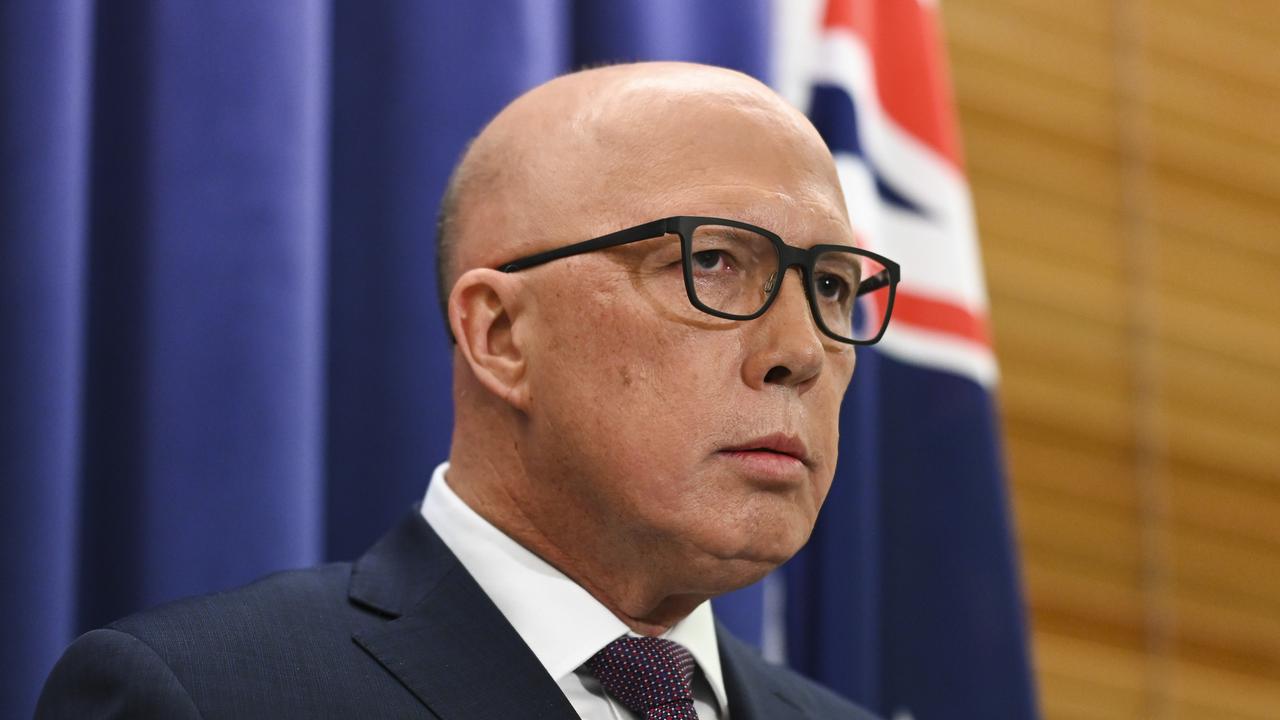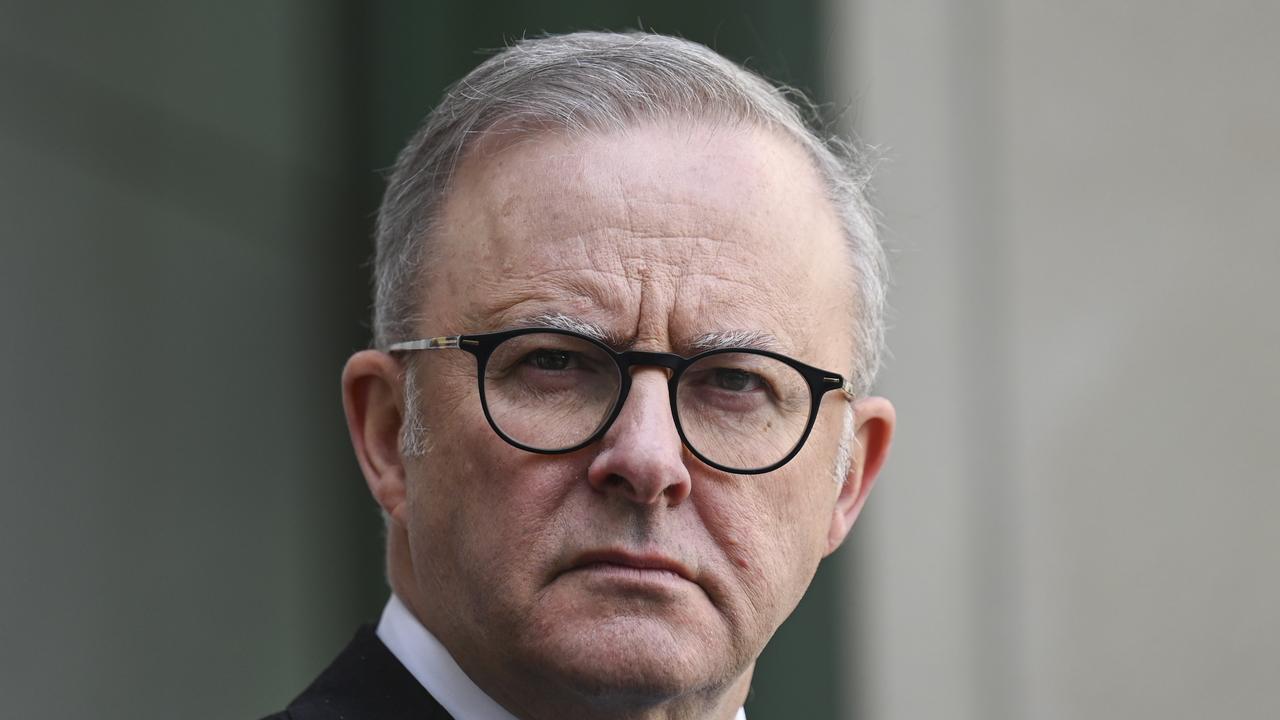Dutton, Albanese locked in war of words as Middle East conflict heats up
Peter Dutton and Anthony Albanese are trading blows over the government’s response to the rapidly expanding conflict in the Middle East.
Peter Dutton and Anthony Albanese are locked in a war of words over the rapidly expanding conflict in the Middle East, with the Opposition Leader saying the Prime Minister is showing “weakness”.
Mr Dutton has been criticising the government all week for its response to shows of support for Lebanese terrorist group Hezbollah at pro-Palestine protests over the weekend.
But he ramped up his attacks on Mr Albanese personally on Wednesday, demanding the Prime Minister stop calling for a ceasefire between Israel and Islamic fundamentalist militants in Lebanon and Gaza.
“Every reasonable Australian at the moment is looking to their prime minister for leadership and what they’re seeing is weakness,” Mr Dutton told reporters.
“Our prime minister should stand up, as the British Prime Minister has, as (US) President Biden has, as (Canadian) Prime Minister Trudeau has, to condemn the actions of Hezbollah.”

He accused Mr Albanese and Foreign Minister Penny Wong, who have continually called on Israel to listen to international calls for de-escalation, of “making political decisions that are of benefit to them domestically but are not in our national interest.”
“I think they should stand condemned for that,” he said.
“I think we need to recognise that Israel is under attack from multiple fronts.
“When people say ‘river to the sea’, and this chant that has now become the norm in the protests that we’re seeing on university campuses or on the streets of our capital cities, what they mean ... is they want to drive people physically into the sea.
“They want to exterminate the people of Israel.”
Mr Dutton’s comments came after Iran, which backs both Hezbollah in Lebanon and Palestinian terrorist group Hamas in Gaza, launched a barrage of missiles at Israel.
Israeli officials have said most of the nearly 200 missiles were intercepted and that no one was killed.
The Albanese government has condemned the Iranian attacks, as it did the presence of Hezbollah flags at the weekend pro-Palestine rallies in Sydney and Melbourne.

“We’re very concerned about Iran’s actions, which is why we condemn them,” the Prime Minister told reporters on Wednesday after the Iran assault.
“It is a good thing that it would appear that the defence of Israel, supported by the United States, has ensured that there is no loss of civilian life ... at this stage.
“There’s been too much loss of life in that region.”
Mr Albanese said Australia had consistently called for de-escalation in the Middle East in line with other Western allies, pointing to a joint statement Australia issued with several countries last week pleading for an immediate 21-day ceasefire on the Israel-Lebanon border.
“I note some politicians are attempting to direct police on the way that they should act.
“But what police should do is enforce the law.”
He said there were laws relating to hate symbols and that the “Hezbollah flag is quite clearly a hate symbol and should not be displayed here in Australia.”
Pressed on his government’s response to the Hezbollah flags, Mr Albanese said it was up to police to enforce the law, in a thinly veiled rebuke to Mr Dutton’s calls for arrests.
“What is important in Australia is that we do have the rule of law and a separation of powers,” he said.
Separation of powers refers to how decision-making is shared in Australia’s governance system to prevent power hoarding.
The Prime Minister then accused Mr Dutton deliberately sowing division and not understanding why the federal government could not direct police to make arrests.
“Peter Dutton has never seen an issue in which he does not seek to promote division,” Mr Albanese said.
“And that is the characteristic that Peter Dutton has had his entire political career.
“It’s not strong to not understand that there’s a separation of powers in this country.”





